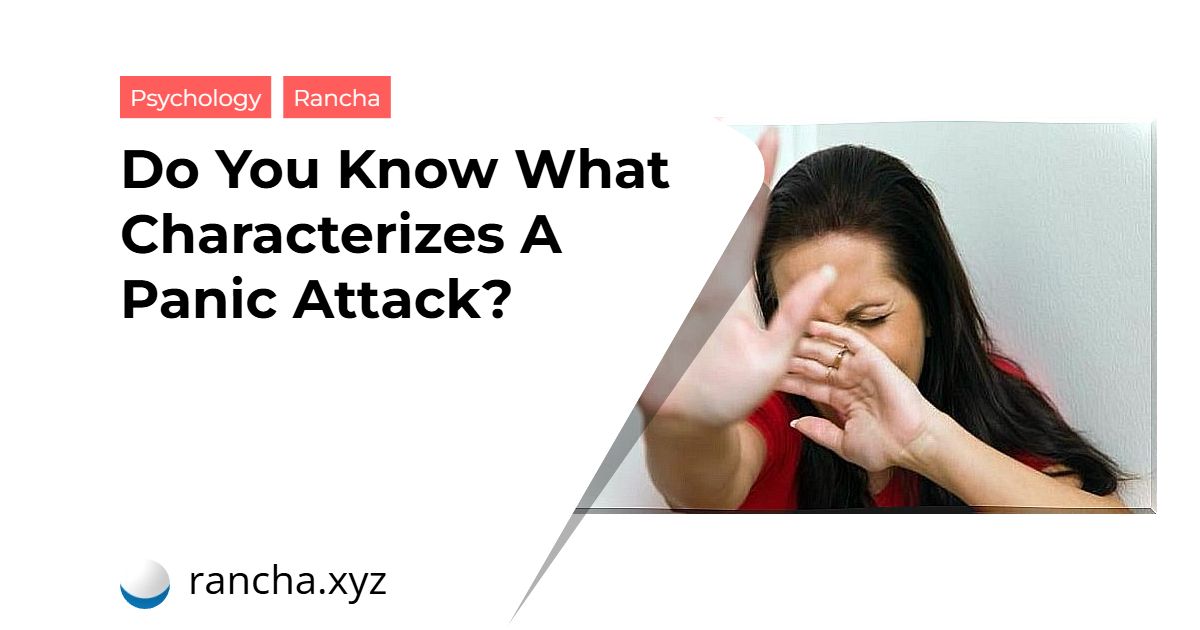This is a period when a person suddenly suffers from a very intense and irrational fear or fear. Its duration can vary between minutes and hours. They usually appear out of nowhere and their maximum intensity is reached in approximately 10 minutes. However, it can continue for longer if the individual does nothing to escape or get out of this situation.
If a person suffers from frequent, intense panic attacks triggered by different factors, it is necessary to consult a specialist. Some make desperate attempts or efforts to get out of the situation, but they don’t always succeed. Others are dedicated to waiting for it to “pass”.
The recurring feeling is fear, terror, fright, panic or whatever you want to call it. Physical symptoms of great intensity appear, such as pulmonary hyperventilation, tachycardia, difficulty breathing, tremors, dizziness, nausea, headache, etc. In many cases, the person does not want to leave the house or work; you prefer to be accompanied and do not wish to use public transport.
Attacks have no warning; they can happen at any time or place. They begin as an ever-increasing anguish, to which anxiety and physiological excitement are added, without an apparent cause or, at least, without our being able to notice it. They have a clear trigger: they appear abruptly and unexpectedly to a person’s normality, their everyday life. These symptoms can persist even after the person has calmed down.
There are some signs that appear at the time of the crisis and others that continue to lurk in the dark, such as instability, migraines, hypertension, chest pain, tachycardia, difficulty breathing, etc.
While panic attacks are short-lived, they are so intense that sufferers think hours rather than minutes have passed since the episode began. It is common for a person to think that he is about to die, or that he absolutely desires to escape to any place. The fact that you cannot do it physically causes fear to increase and affect your ability to reason.
The average age of onset of this problem is 22 years old and it is believed that it is due to a lack of family (or youth life) or personal autonomy (having to take charge of your own life). Sensations range from losing control or reason to dying, escaping from a place, situation or moment or having an unrealistic perception of what is happening.
What Causes Panic Attacks?
We do not present a list of all the triggers of panic attacks, as they depend on the characteristics of each person or situation. However, it is possible to identify some of these conditions:
– Hereditary predisposition: they can also be related to education (environmental factors), situations in which fear is implanted in children in order to protect them, a very fearful mother, an obsessive father for control, a childhood trauma, etc. .
– Biological causes:
– Phobias: they also generate fear in the short term and, if left untreated, they can get worse and worse. From spiders to confined spaces, through planes or people.
– Medicines : some drugs such as antidepressants, stimulants or depressants (caffeine is the most common) can cause panic attacks.
– Persistent causes: thinking negatively all the time, having a bad image of yourself, bad thoughts about something, repressed feelings, constant doubts, lack of assertiveness (when confrontation is avoided and communication is more passive).
– Withdrawal syndrome : the panic attack can appear as a symptom when you stop consuming any kind of substance, be it legal or illegal (alcohol, drugs, tobacco, medication, etc.).
How to face the panic attack?
Once it has been determined that a person has panic attacks, the next step is to confront that situation. This requires time and patience for the patient to face the fear and not avoid or avoid it. These golden rules for panic attacks are really very effective:
1- Remember that your feelings are just an exaggeration of what is or is actually happening
2- It’s just an unpleasant moment, not harmful, not dangerous and nothing bad can happen
3- No more alarming negative thoughts in between of the attack; it is better to imagine something wonderful like a bird, a flower, an evening.
4- Pay attention to what is happening in your body and not in your mind
5- Wait and let this fear pass; don’t fight, accept it, let it go alone, just as it came
6- Remember that when you stop thinking about bad or alarming things, the fear will go away
7- The main thing is to face the fear and not to avoid it ; it’s a great opportunity to improve
8- Think about the progress you’ve made despite everything
9- Look around you as soon as you feel better and give thanks for everything you have
10- Start moving slowly when you’re ready; don’t run or strain, do everything slowly.
 rancha.xyz Be free to choose their own route to self-knowledge, health and balance of body and soul.
rancha.xyz Be free to choose their own route to self-knowledge, health and balance of body and soul.




